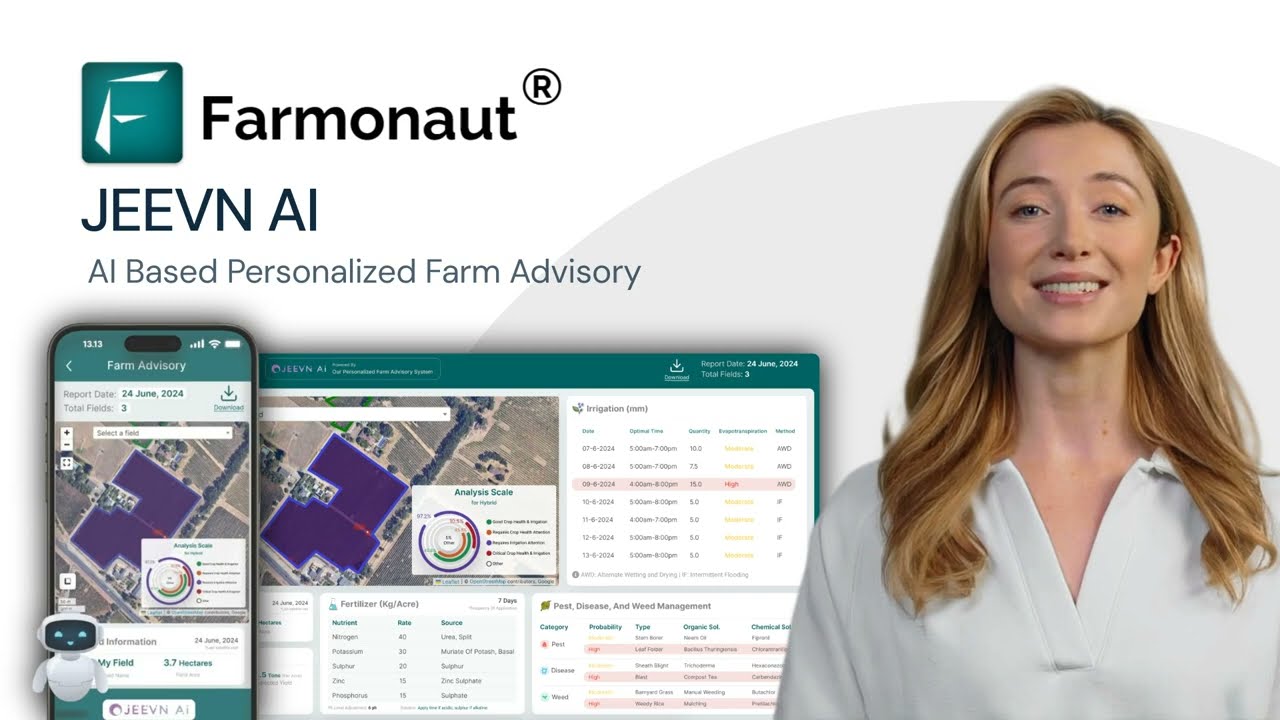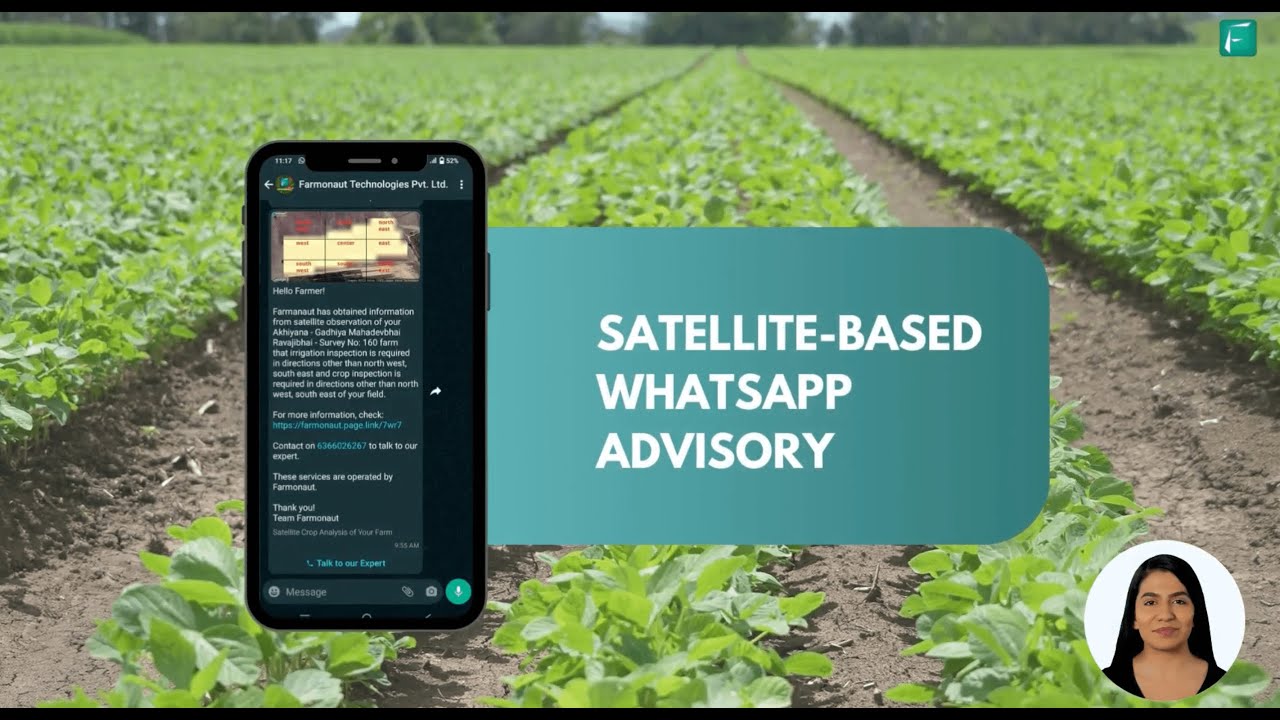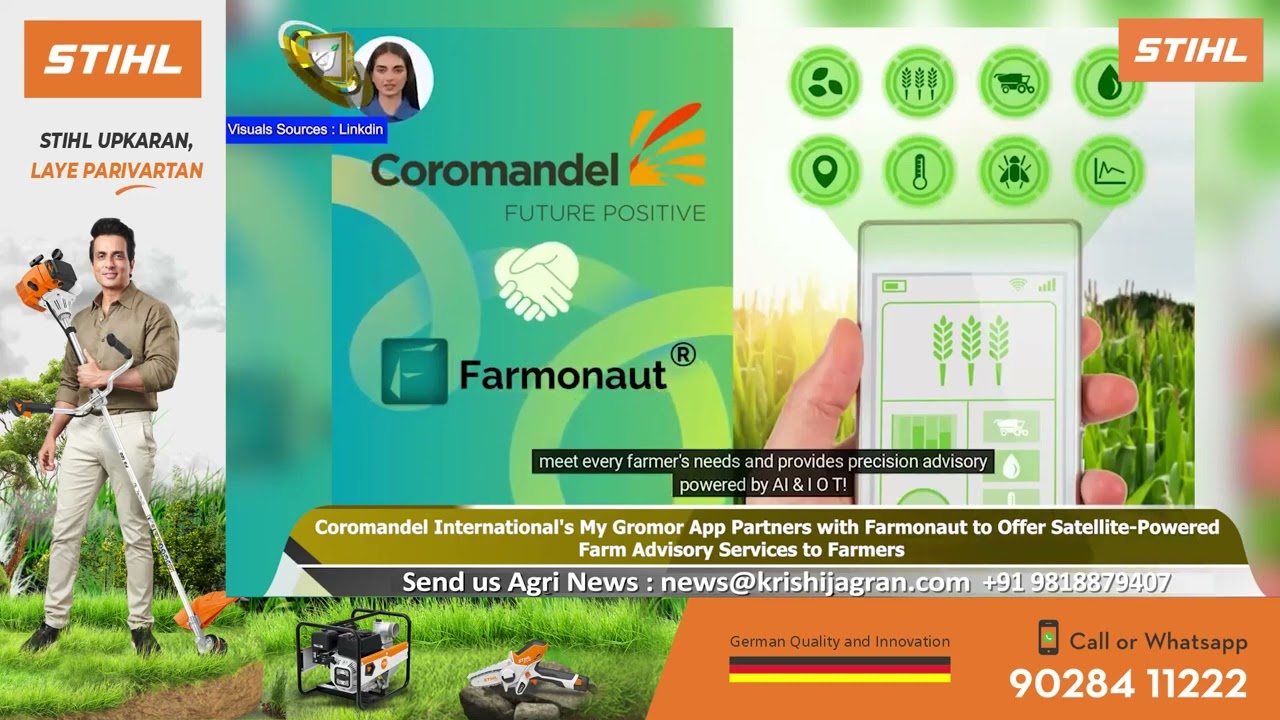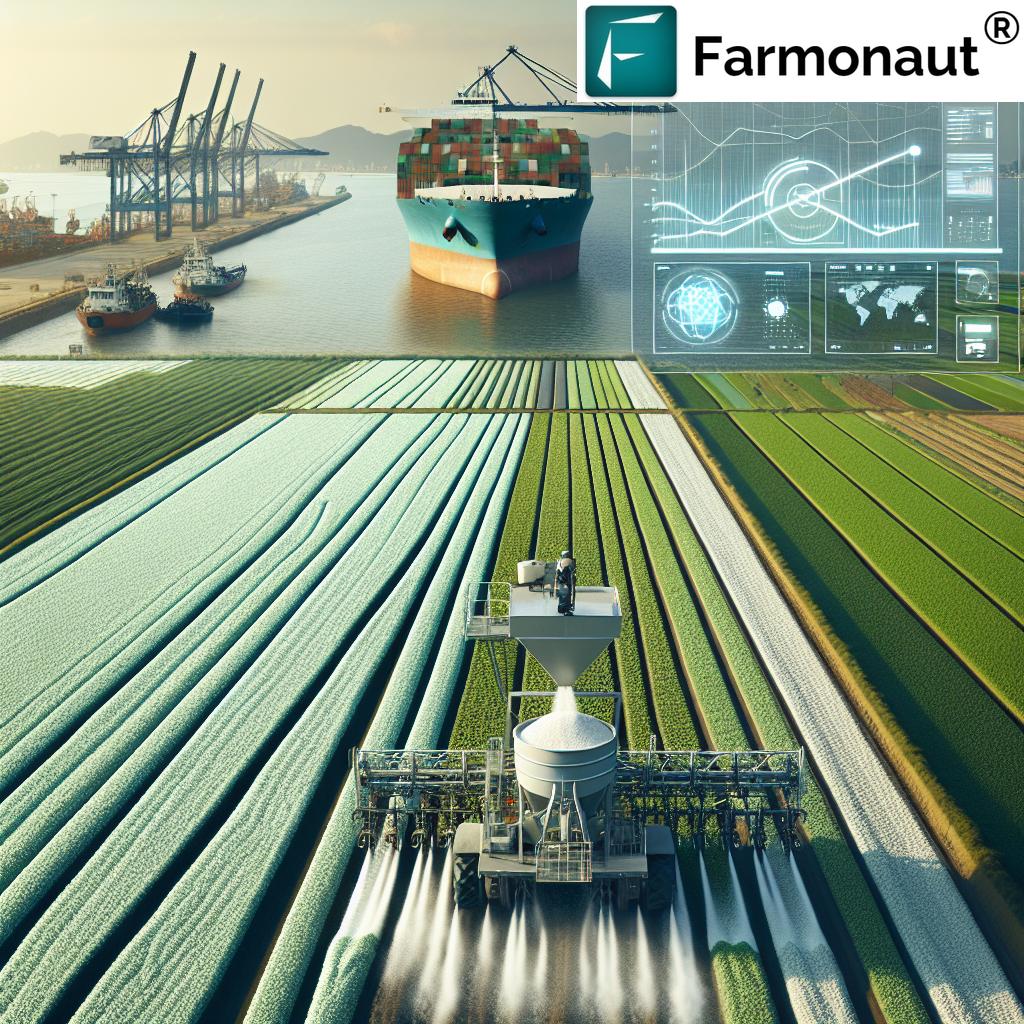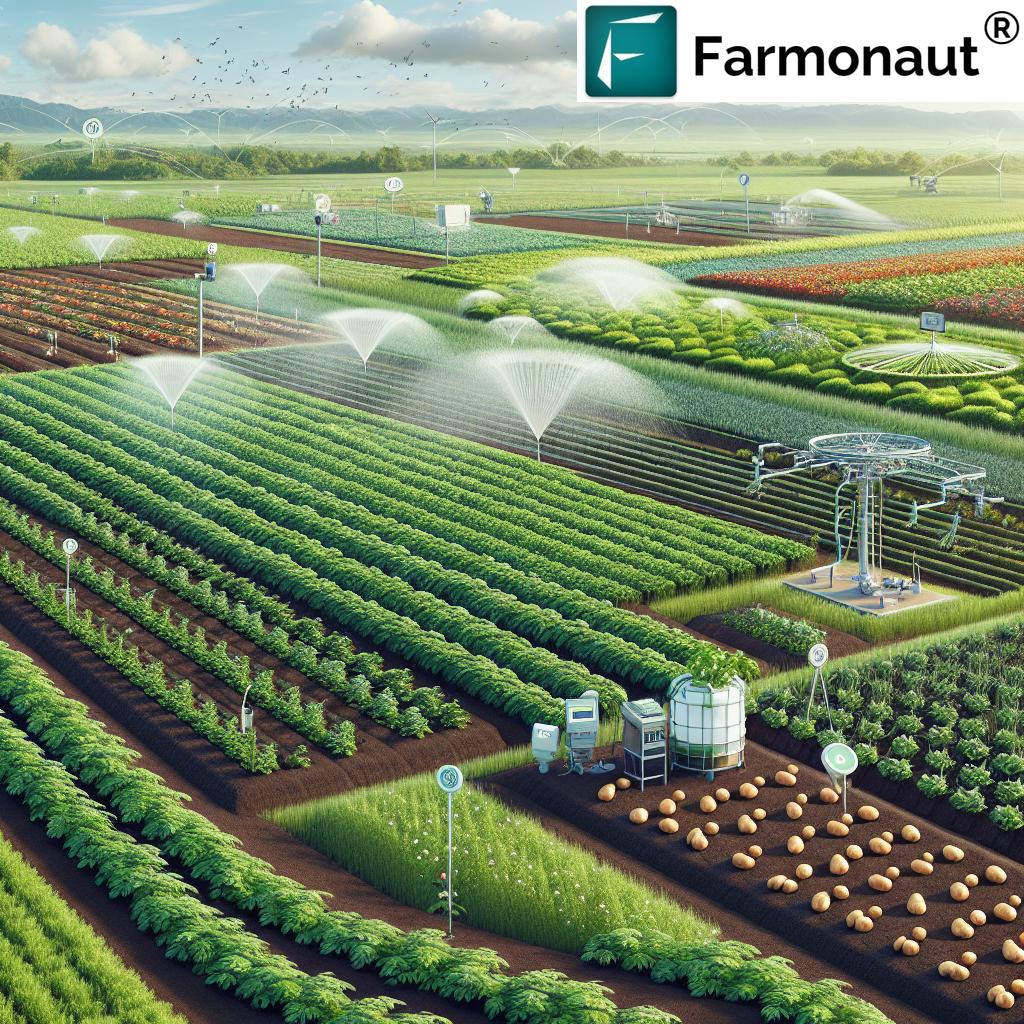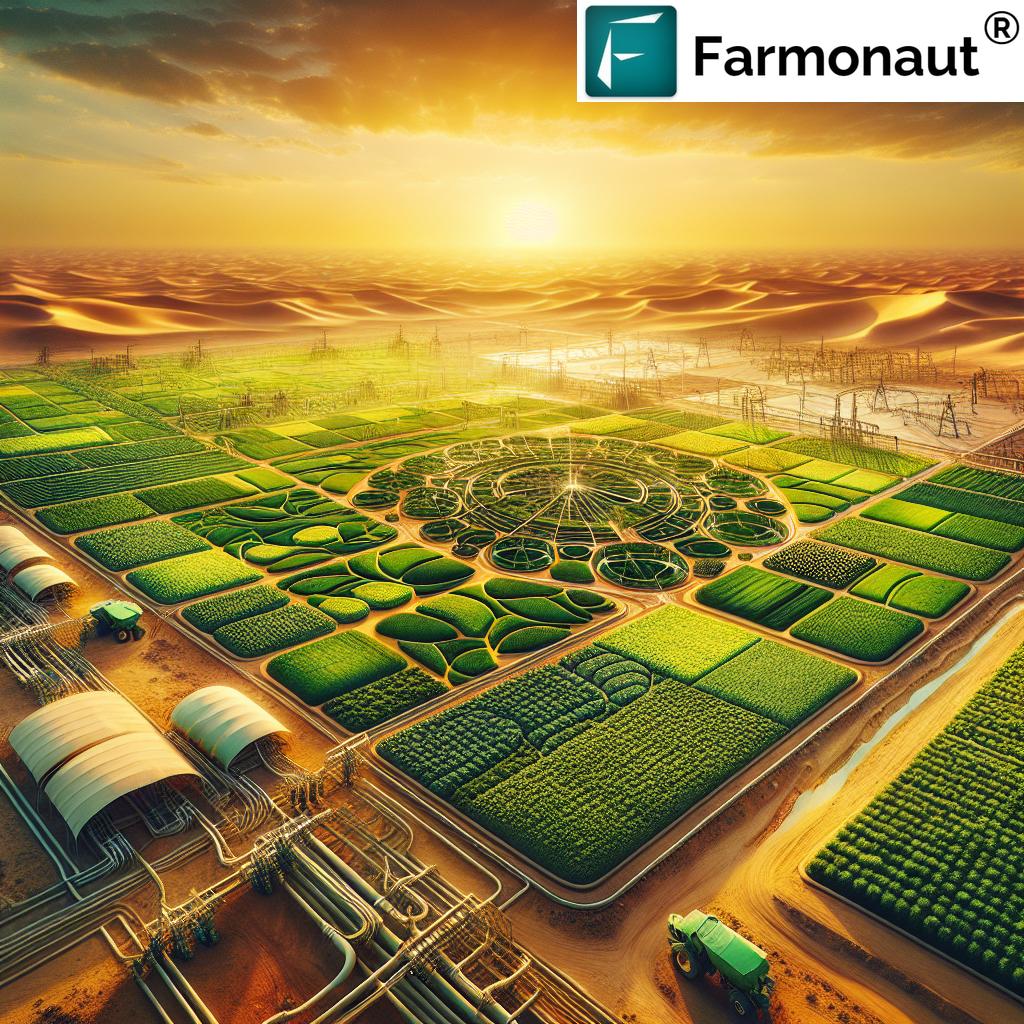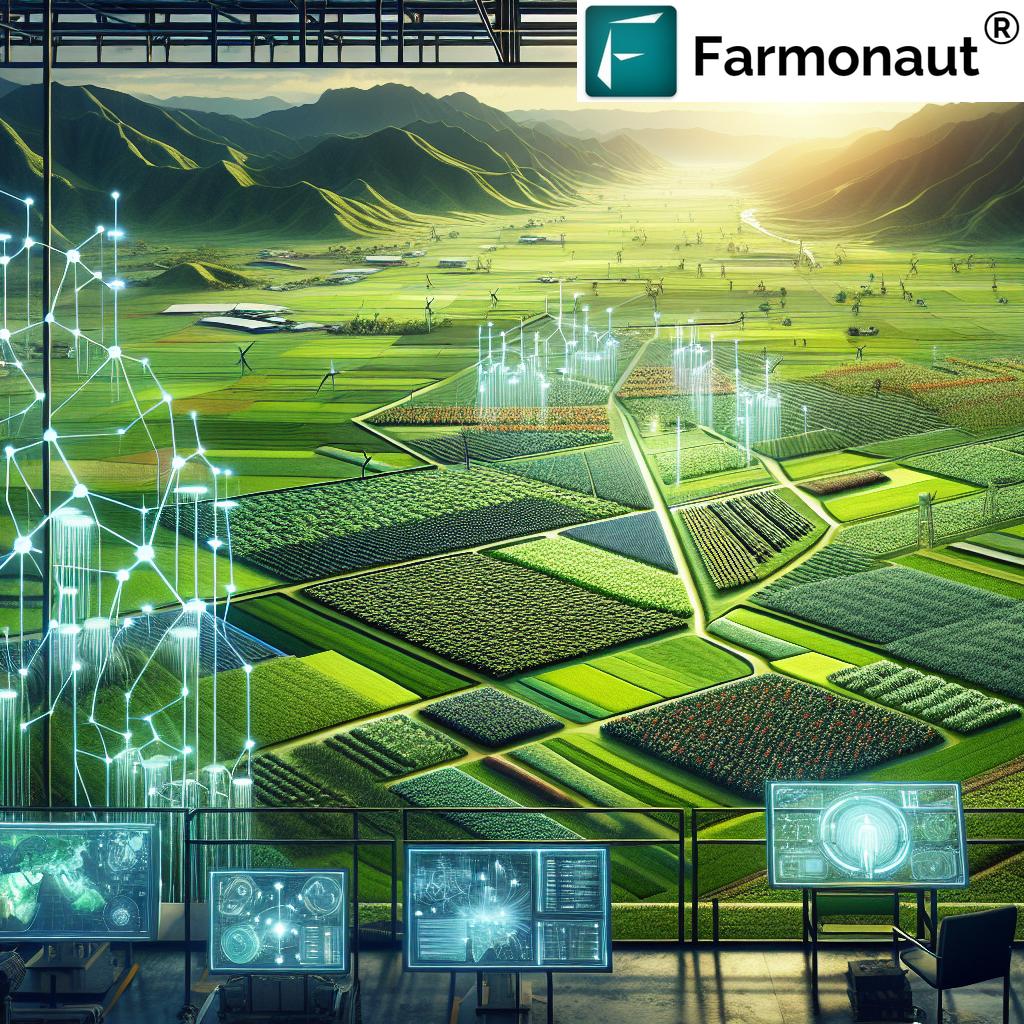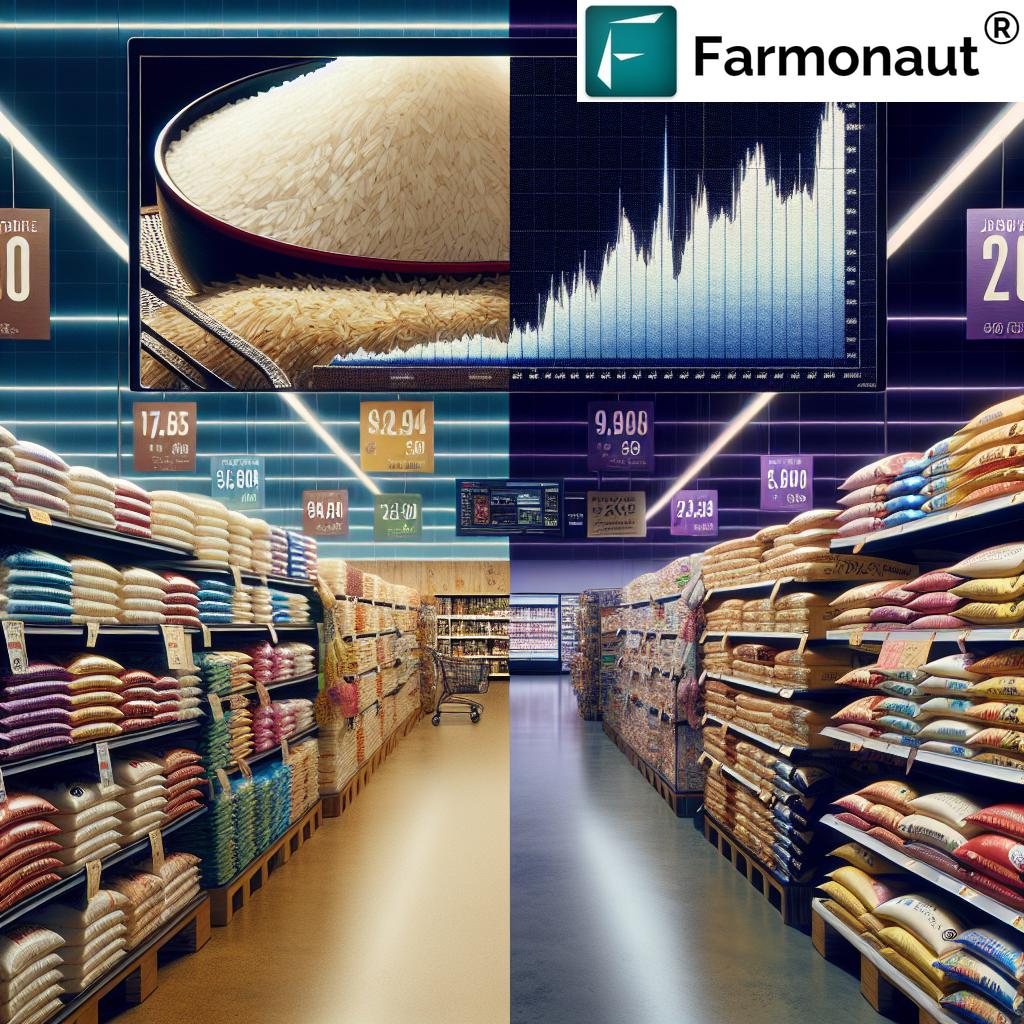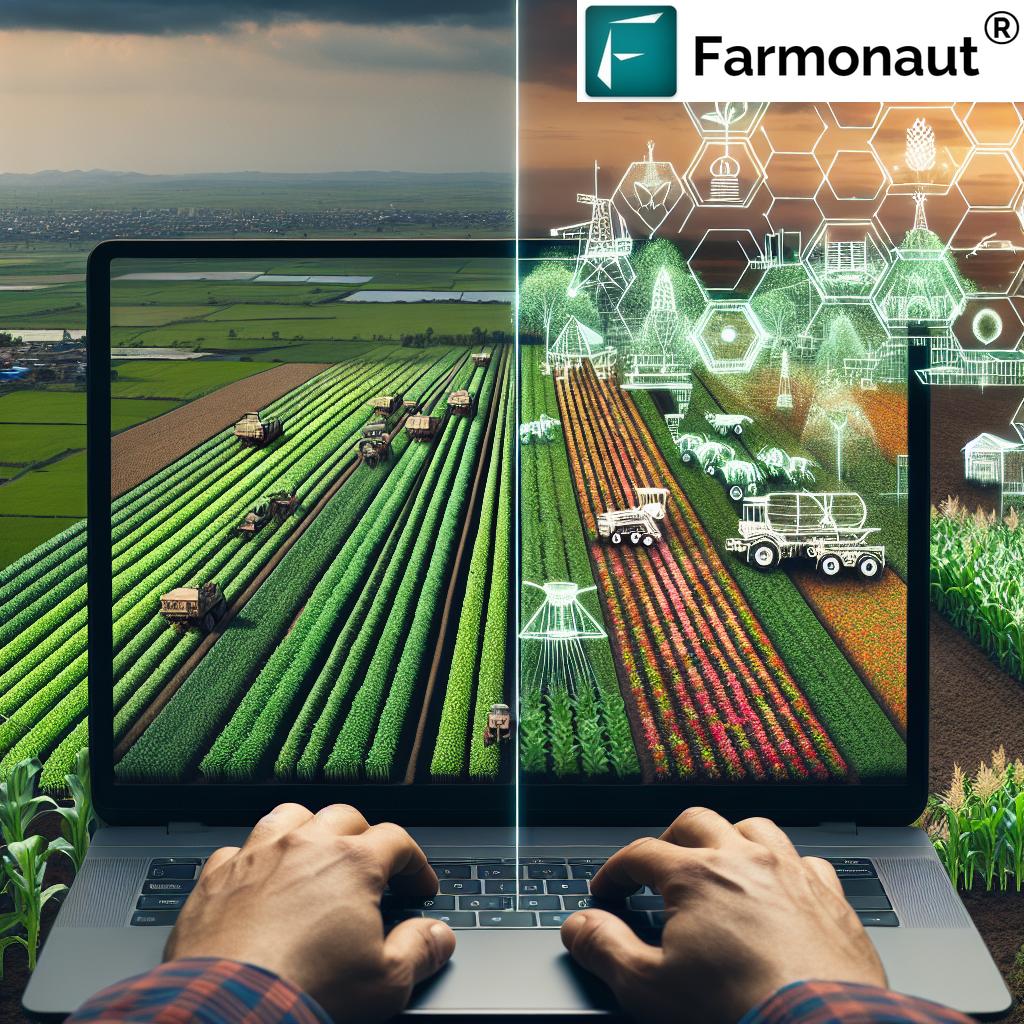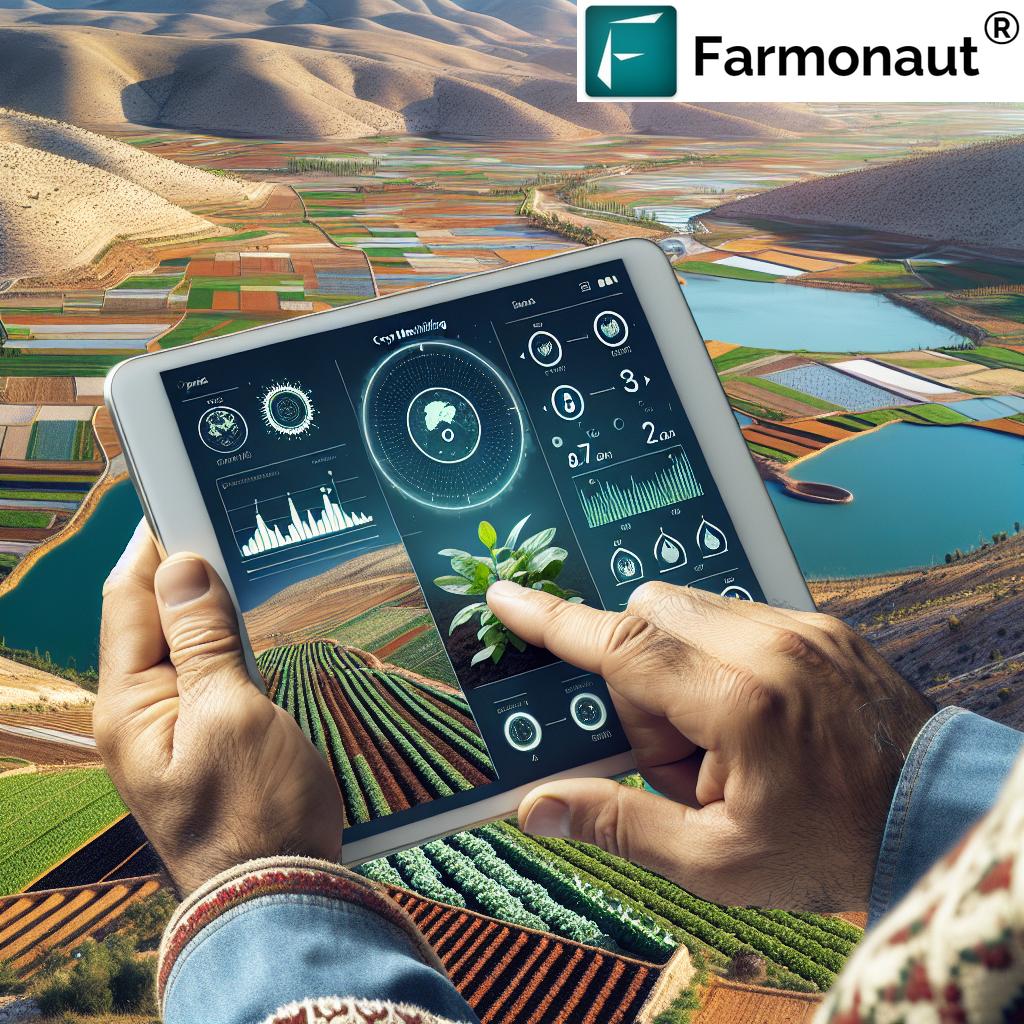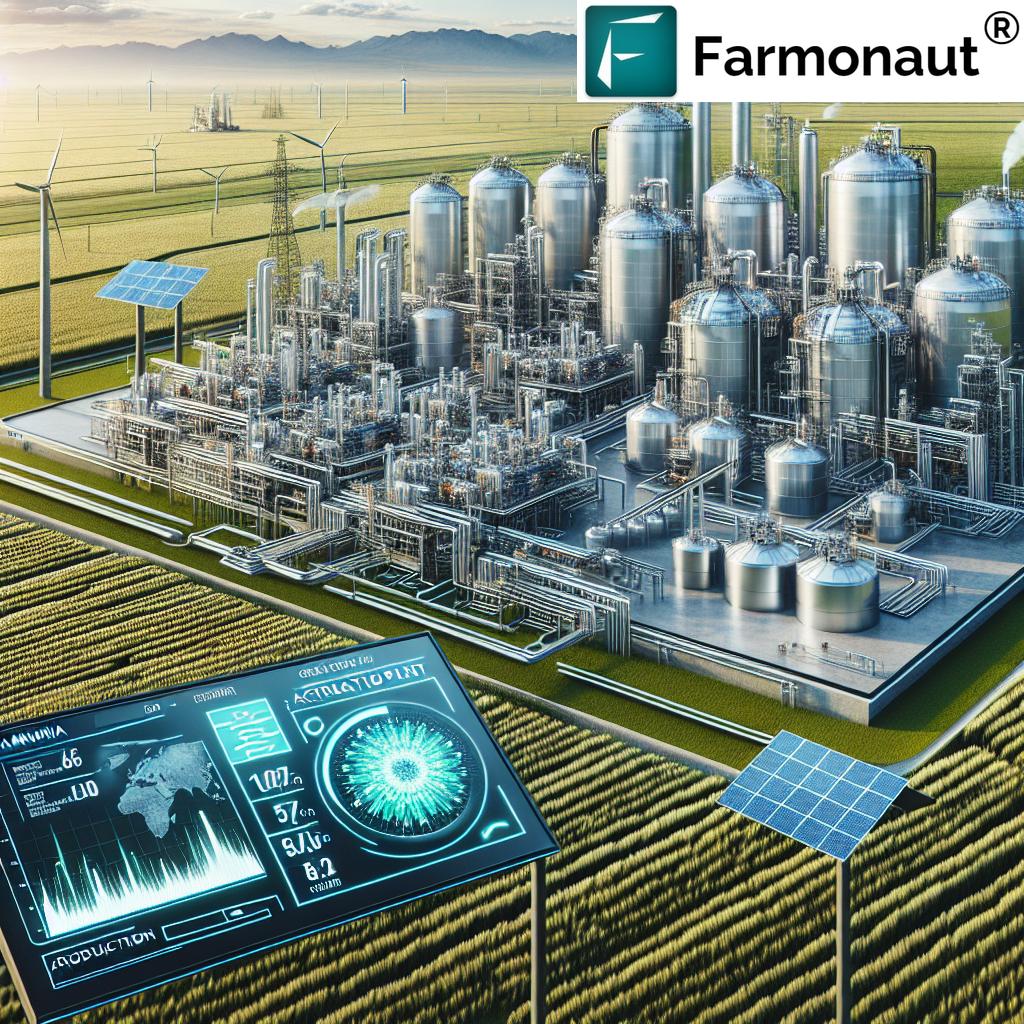Philippines Rural Farmers: Mobile Phone Agriculture Solutions
“Over 70% of Philippine rural farmers now use mobile phones for real-time crop and weather updates.”
Contents
- Introduction: Empowering Philippine Farmers with Mobile Technology
- The Role of Mobile Phones in Philippine Agriculture
- Agricultural Information Access via Mobile Devices
- Market Access for Rural Farmers Through Mobile Platforms
- Mobile-Based Financial Solutions for Farmers
- Climate Resilience and Early Warning Systems for Crops
- Training and Capacity Building with Digital Tools
- Philippine Mobile Agriculture Solutions: A Comparative Table
- Addressing Challenges in Mobile Tech Integration
- Farmonaut: Revolutionizing Agriculture with Satellite-Based Digital Solutions
- The Digital Future: Growing Opportunities for Filipino Rural Farmers
- Farmonaut Subscription Plans
- Frequently Asked Questions (FAQ)
- Conclusion: Advancing Philippines Agriculture with Mobile Innovation
Introduction: Empowering Philippine Farmers with Mobile Technology
In the Philippines, agriculture stands as a cornerstone of the economy. A significant portion of our population remains engaged in farming and forestry, from the rice fields of Central Luzon to the coconut plantations of Mindanao. Despite this, rural communities regularly face a landscape of challenges: limited access to real-time information, unpredictable market fluctuations, and increasing environmental uncertainties.
With the advent of mobile phones and digital technology, these barriers are steadily being dismantled. Mobile technology in agriculture delivers transformative power directly into the hands of Filipino farmers, giving us the tools and solutions needed for a more sustainable future. This comprehensive guide explores how phones and mobile applications are reshaping our agricultural sector, equipping rural communities with advanced, affordable, and impactful platforms for a thriving tomorrow.
The Role of Mobile Phones in Philippine Agriculture
Across the archipelago, mobile phones are now as common as carabaos in the field. Serving as both an instrument for communication and tool for productivity, these devices have fundamentally reshaped the practice of agriculture across the Philippines. Through seamless integration of digital tools and local programs, we have seen dramatic improvements in the ways agricultural information is delivered and acted upon.
From sowing to selling, phones enable farmers to bridge the traditional information gap. Filipino rural communities can now access best-practice crop management advice, monitor weather and pest patterns, negotiate with market buyers, and manage financial transactions—all with just a few taps.
Agricultural Information Access via Mobile Devices
Traditionally, sources of agricultural information for Filipino farmers were limited. Many relied on word-of-mouth, local cooperatives, or periodic visits from field officers. As a result, crucial advice on crop issues, diseases, and pest outbreaks would often arrive too late. By leveraging digital solutions, mobile technology in agriculture now provides access to a wealth of real-time data and best practices to help farmers make scientifically informed decisions.
- Weather Updates & Patterns: Access localized weather forecasts and rain predictions. This allows us to optimize irrigation calendars, minimize loss from unexpected rainfall, and enhance climate resilience.
- Pest and Disease Alerts: Mobile apps like SPIDTECH help us identify insect pests and manage outbreaks early, protecting our crops and increasing yield.
- Crop Management Guidance: Digital apps provide local-language guides for sustainable agriculture practices—from seed selection to fertilizer recommendations and soil health improvement.
One such example is the Digital Farmers Program, initiated to bridge the gap between rural farmers and digital information by boosting their digital literacy and knowledge. Through this program and related efforts, thousands in the Philippines are now actively leveraging digital tools for farmers to improve productivity.
To further empower Filipino farmers with real-time crop health monitoring using satellite-based digital technology, Farmonaut’s mobile and web platforms stand at the forefront. By enabling affordable access to NDVI satellite imagery, soil moisture data, pest risks, and tailored AI-based crop advisories, we make technology and data-driven decision-making accessible for every Filipino farmer.
Market Access for Rural Farmers Through Mobile Platforms
One of the greatest challenges that rural farmers in the Philippines face is market access. Middlemen and inconsistent pricing often erode our income, while lack of direct communication with urban consumers leads to missed opportunities. Mobile agriculture apps and platforms are rapidly changing this landscape by enabling direct linkages with local and regional markets.
- Integrated Marketplaces: Digital platforms such as Tagani connect producers with buyers, streamlining transactions and rewarding farmers with fairer prices.
- Real-time Market Data: Applications provide daily price updates for staples like rice, corn, and vegetables, helping us choose the best time and place to sell.
- Reducing Intermediaries: With mobile e-commerce, Filipino farmers can now reduce dependency on intermediaries, improving their share of the market profit.
“Mobile agriculture apps have increased market access for Filipino farmers by up to 40% in recent years.”
In essence, the integration of market platforms with mobile technology is not just improving our access to markets, but fundamentally transforming the business of farming into a more sustainable and inclusive venture.
Furthermore, blockchain-based product traceability solutions from Farmonaut now empower agricultural supply chains with transparency from farm to table, building trust and opening new premium market segments for Philippine produce.
Mobile-Based Financial Solutions for Farmers
Access to financial services is a persistent issue for Philippine rural communities. Traditionally, farmers struggled to obtain financing due to lack of collateral, documentation, or trust. Mobile technology in agriculture is closing this gap:
- Microloans & Insurance: With satellite-based verification provided by platforms like Farmonaut, farmers can now access affordable crop loans and insurance with less paperwork and faster approval.
- Mobile Wallets: Applications allow for direct deposit of sales, payments, and even government aid, eliminating the risks and delays of cash-based systems.
- Financing for Inputs: Digital financing solutions enable us to acquire seeds, fertilizers, and equipment with flexible payment schedules tailored to our seasonal incomes.
This revolution in mobile-based financial solutions creates a more level playing field, giving every farmer the necessary tools to invest in their farm, manage risk, and increase long-term income.
Businesses, agribusinesses, and government agencies can also utilize Farmonaut’s fleet and resource management solutions for more efficient transportation of produce, equipment coordination, and optimization of farm resources across multiple locations.
Climate Resilience in Farming and Early Warning Systems for Crops
The Philippines is on the frontlines of climate change, with frequent typhoons, droughts, and erratic weather patterns endangering crop yield and health. Mobile technology in agriculture plays a vital role in building climate resilience:
- Disaster Preparedness: Early warning systems alert us about impending rains, storms, floods, and pest infestations, so we can secure crops, adjust planting schedules, or apply protective measures.
- Real-time Monitoring: Farmonaut’s advanced satellite monitoring platforms enable farmers to track soil moisture, vegetation health, and receive automated advisories—boosting preparedness for weather-related risks.
- Disease and Pest Management: Digital alerts, based on satellite-derived risk mapping, are revolutionizing pest and disease mitigation, further improving our response and safeguarding livelihoods.
By providing actionable information, early warning systems for crops reduce losses, minimize disruption, and support the transition to more sustainable agriculture practices across the country.
Training and Capacity Building with Digital Tools for Farmers
Ongoing learning is essential to remain competitive and adaptive in agriculture. The integration of mobile platforms such as the FarmTech program ensures every farmer across the Philippines can upgrade their skills anytime, anywhere.
- Access to Educational Content: Training videos, digital manuals, and expert Q&A boards are only a tap away, covering everything from fertilizer management to post-harvest handling.
- Virtual Community Forums: Secure chat groups and interactive platforms foster knowledge-sharing and collective problem-solving among farmers and extension agents.
- Personalized Advisory Systems: Via AI-based systems such as Jeevn AI in the Farmonaut app, each farmer receives tailored advice based on their land, crop type, and local weather.
This constant training supports more efficient decision-making, the adoption of innovative practices, and wider upskilling despite rural remoteness or resource constraints.
Philippine Mobile Agriculture Solutions: A Comparative Table
To help us effectively choose the best digital tools for farmers in the Philippines, the following table compares key features, user adoption rates, and reported impacts on crop yield and accessibility.
| Mobile App/Solution Name | Main Features | Estimated User Adoption (%) | Reported Crop Yield Improvement (%) | Accessibility | Language Availability |
|---|---|---|---|---|---|
| Farmonaut | Satellite-based crop health monitoring, AI-driven advisory, blockchain traceability, resource & fleet management, carbon footprinting | 15–18% | 8–15% | Online (Web, Android, iOS, API) | English, Filipino, other local dialects |
| e-Kadiwa | Online market linkage, e-commerce, price discovery | 10–12% | 5–7% | Online (Web, App) | English, Filipino |
| SPIDTECH | Pest and disease identification, reporting, advisory | 7–10% | 4–9% | Offline/Online (App-based) | English, Filipino, regional languages |
| FarmerLink | SMS alerts, information dissemination, weather notification | 12–15% | 6–10% | Offline (SMS), Online | Filipino, local dialects |
| ATI Mobile Apps | Agricultural training, market prices, farming guides | 5–8% | 3–6% | Online (App-based) | English, Filipino |
For developers and agribusinesses interested in integrating satellite and weather data, Farmonaut’s API and developer documentation provide scalable, programmable access to precision farm management information.
Addressing Challenges in Mobile Tech Integration
Despite clear advances, significant challenges remain in the path towards complete mobile integration for Philippine agriculture:
- Infrastructure Gaps: Limited internet connectivity in remote areas still hinders consistent access to advanced apps and real-time data. Initiatives to expand broadband and affordable mobile data coverage remain crucial.
- Affordability: Many rural farmers struggle with the cost of smartphones and data plans. Ongoing subsidy programs and affordable smart devices are steps towards greater digital inclusivity.
- Digital Literacy: While adoption is accelerating, training is still needed to ensure older or less experienced users can fully utilize digital tools. This is where farmer field schools and mobile training modules play a key role.
- Localized Content: For maximum impact, applications need to be available in major Philippine languages/dialects and include local crop management specifics.
By tackling these barriers, we make sustainable agriculture practices and digital innovation universally accessible and impactful across all corners of our archipelago.
Farmonaut: Revolutionizing Agriculture with Satellite-Based Digital Solutions
Farmonaut represents a leap forward in empowering Philippine rural farmers through affordable precision agriculture. By leveraging the power of satellite imagery, AI-driven advisories, and blockchain-based traceability, Farmonaut brings global agritech solutions for rural communities right to our phones and computers.
- Real-time Crop Health Monitoring: Farmonaut’s platform analyzes satellite imagery to assess NDVI (vegetation health), soil moisture, and pest risk. This empowers farmers with actionable visual maps for improving crop yield in the Philippines and minimizing resource waste.
- AI-Based Personalized Advisory: The unique Jeevn AI system gives each farmer a set of custom tips, weather alerts, and crop management guidelines, all by analyzing remote sensing and big data.
- Supply Chain Transparency: Using blockchain tools, Farmonaut enables traceability from seed to shelf, enhancing market reputation and security.
- Resource/Fleet Management: Agribusinesses and plantation managers can monitor equipment, vehicles, and field operations for maximum efficiency.
- Carbon Footprint Tracking: With dedicated carbon footprint reporting, Farmonaut helps organizations and farmers monitor sustainability goals, reduce environmental impact, and ensure compliance with regulatory requirements.
- Financing and Crop Loan Verification: Through satellite-verified reports, banks can quickly process and release loans or insurance payouts to genuine farmers.
Farmonaut is purpose-built to serve not only individual farmers but also government agencies, agribusinesses, financial institutions, and corporate clients needing reliable, scalable, and cost-effective digital farming infrastructure across the Philippines and beyond.
For broad-acre industries, estate operators, or government-led reforestation, Farmonaut’s large-scale farm management solutions bring dashboard views, yield mapping, and resource allocation across distributed land parcels—perfect for large cooperatives and municipal projects.
Ready to experience the future of farming? Try Farmonaut’s web, Android, or iOS app today for instant access to all these features tailored for the Philippine farmer!
The Digital Future: Growing Opportunities for Filipino Rural Farmers
As the integration of mobile technology in agriculture accelerates, the Philippine sector is poised for further transformation:
- Increasing Automation: The expansion of AI, machine learning, and satellite sensing will unlock even more granular, predictive modeling for crop management and income planning.
- IoT and Sensor Networks: With improved internet infrastructure, on-field sensors will integrate with mobile dashboards for even more precise, real-time recommendations and tracking.
- Expanded Financial Products: As mobile financing matures, expect more crop-specific, disaster-resilient loans and insurance accessible from any phone.
- Community and Policy Engagement: Digital platforms allow us to quickly mobilize around community issues, report scams, and provide feedback to government agencies for better policy design.
- Global Linkages: Through traceability and e-commerce, Filipino farmers can access export markets more easily, increasing the value of Philippine agriproducts worldwide.
In conclusion, digital tools for farmers—including those brought by Farmonaut and other leading solutions—are more than technological band-aids. They are the engines of inclusive growth, environmental sustainability, and resilience for all rural communities in the Philippines.
Farmonaut Subscription Plans
Farmonaut operates a flexible, subscription-based model, ensuring both smallholders and corporate entities can access affordable, premium precision agriculture tools. Select a custom package based on farm size and update frequency, or integrate our API for your enterprise systems.
Getting started is seamless—register, upload your farm details, and unlock instant access to your dashboard!
Frequently Asked Questions (FAQ)
-
Q: How can mobile phones help rural farmers improve crop yield in the Philippines?
A: Mobile phones provide real-time access to data on weather, pests, and best practices. Apps like Farmonaut offer satellite-based crop health monitoring and AI-driven advice, enabling Filipino farmers to make timely, informed decisions and improve yield. -
Q: Are these digital agriculture tools available in Filipino and regional dialects?
A: Yes! Most popular mobile agriculture apps in the Philippines, including Farmonaut, support English, Filipino, and other major local languages for easy access and understanding. -
Q: What if my area lacks strong internet connectivity?
A: Several applications offer offline features (such as SMS alerts and cached content), and ongoing initiatives are improving rural internet infrastructure to ensure more farmers benefit from advanced digital tools. -
Q: Is Farmonaut only for large agribusinesses?
A: No, Farmonaut is designed for everyone—from smallholder farmers to agri-corporations. Its flexible pricing and modular features mean even individual farmers and cooperatives can afford precision agriculture solutions. -
Q: How does Farmonaut guarantee data transparency and trust?
A: Farmonaut utilizes blockchain-based product traceability, providing an immutable, verifiable record of crop journey from farm to market—essential for consumer trust and international exports. -
Q: Can I use Farmonaut for sustainable forestry or large plantation management?
A: Absolutely! Farmonaut’s crop plantation and forest advisory tools are ideal for estate management, afforestation, and integrated farm monitoring.
Conclusion: Advancing Philippines Agriculture with Mobile Innovation
As we’ve explored, mobile technology in agriculture has emerged as a keystone for progress, equity, and sustainability across Philippine rural communities. Our journey—from isolated information access and market challenges to the contemporary reality of connected, data-driven agriculture—charts a blueprint for resilience and prosperity.
The democratization of precision agriculture through solutions like Farmonaut now puts the power of satellite monitoring, AI advisory, and blockchain traceability directly into the hands of both individual farmers and large operators. Whether our aim is higher productivity, lower environmental footprint, market competitiveness, or climate resilience, embracing digital tools enables our Philippine agriculture sector to thrive in the face of future uncertainties.
Let us continue to invest in connectivity, training, and technology, ensuring no Filipino farmer is left behind in the digital revolution. The story of Philippine agriculture is one of adaptation, courage, and innovation—and with mobile solutions like Farmonaut, we are equipped to write its next successful chapter.
Discover the power of precision farming—let’s unlock the full potential of Philippine agriculture together!







